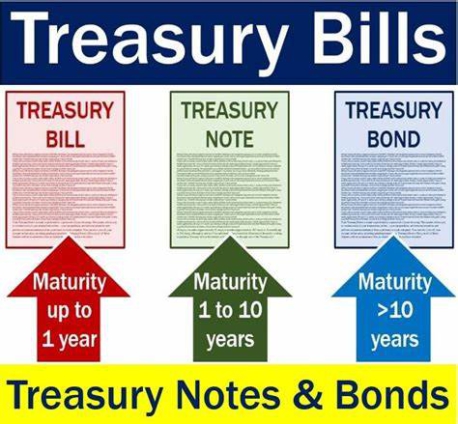For the first time since the third week in November, sale of Treasury bills to investors have been undersubscribed in the weekly auctioning of the short-term securities.
But this time around, the under-subscription is very significant.
Right after the December 7th elections, the weekly Treasury bills sale was highly oversubscribed by about 21%.
But that has been short-lived as there has been a huge under-subscription
by investors.
Whilst government was looking for GH¢1.79 billion, it rather got GH¢971.7 million for the 91-day, 182-day and 364-day Treasury bills.
For the 3 months T-Bill, government accepted all the bids worth GH¢759.8 million, whilst it accepted GH¢154.9 and GH¢56.9 million for the six months and one year Treasury bills respectively.
Interest rate for the 91-day and 182-day T-Bills however still hover around 14.08% on the average, whilst that of the one year bill is going for 16.9%.
Analysts believe the successful sale of the 3-year fresh bond and the 20-year Treasury bond during the past week could be attributed to the lower participation of investors in the weekly T-Bills auctioning.
“There were two other offers in the same week which raised substantial sizes. I believe these dual offers provided significant competition for the T-bills. The 3-year offer, which raised GH¢1.66 billion provided the main competition at 19.25% and attracted most of the interbank liquidity for the week”, Courage Martey, Senior Economic Analyst with Databank Research told Joy Business.
Secondly, banks and retail investors may be looking to hold more cash balances ahead of the Christmas holidays. This could also have restrained investment demands and weighed on subscription at the T-bills auctions.
Meanwhile, there is an anticipated slight fall in interest rates in the coming weeks because of decline in inflation.
Interest rate ease on short-end of market
Interest rate trends on the money market reflected mixed developments as
yields on the short to medium term instruments eased, but broadly tightened at the longer end, the Bank of Ghana said in its Monetary Policy Report.
On a year-on-year basis, the 91-day Treasury bill rate declined to about
14.1% in October 2020 from 14.7% a year ago.
Similarly, the interest rate on the 182-day instrument declined to 14.1%
from 15.1%.
With the exception of the 6-year bond, yields on the 7-year, 10-year, 15-
year, and 20-year bonds all increased.
Latest Stories
-
Ghanaian teacher Morkporkpor Fiador’s GWR Read-A-Thon attempt postponed
8 minutes -
Revocation of licences of UT, Capital banks were strict requirements from IMF – Dr. Addison
9 minutes -
MP Cynthia Morrison among 280 members expelled by Agona West NPP
18 minutes -
NPP to set up committee to investigate 2024 election defeat – Stephen Ntim
35 minutes -
New Juaben North NDC executives intercept 24k bags of fertiliser at Koforidua
2 hours -
Luigi Mangione pleads not guilty to murdering healthcare CEO
2 hours -
GhLA opens applications for 2nd Edition of Youth Advocacy Challenge
2 hours -
Remote Work in Africa; the Doballi solution
2 hours -
Stephen Ntim rallies NPP members after 2024 election loss
2 hours -
AratheJay ignites the night with mesmerising ‘Nimo Live’ debut concert
2 hours -
Diplomatic Corps in Ghana applaud Bawumia
2 hours -
Drought hits over 58,700 hectares of crops in Oti Region
2 hours -
Stakeholders advocate waste recycling to drive economic empowerment at Recycle Up! Ghana 10th anniversary
3 hours -
Biden commutes most federal death sentences
3 hours -
Hollywood stars support Blake Lively over legal complaint
3 hours

